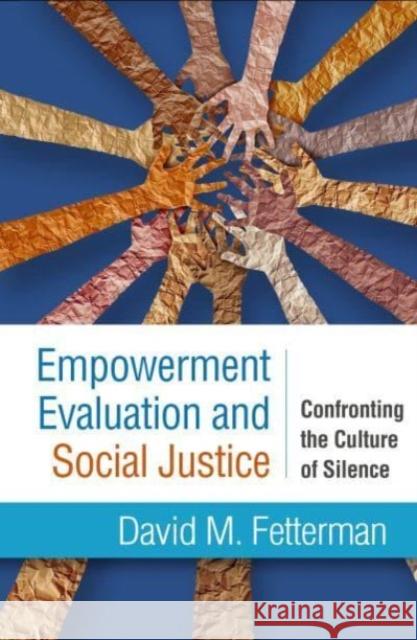Empowerment Evaluation and Social Justice: Confronting the Culture of Silence » książka
Empowerment Evaluation and Social Justice: Confronting the Culture of Silence
ISBN-13: 9781462551958 / Angielski / Miękka / 2023 / 146 str.
Empowerment Evaluation and Social Justice: Confronting the Culture of Silence
ISBN-13: 9781462551958 / Angielski / Miękka / 2023 / 146 str.
(netto: 161,88 VAT: 5%)
Najniższa cena z 30 dni: 168,92
ok. 22 dni roboczych
Dostawa w 2026 r.
Darmowa dostawa!
From the founder of empowerment evaluation (EE), a framework uniquely suited to advancing social justice causes, this book explains the theories, principles, and steps of conducting EE from scratch or within a preexisting evaluation or work plan. David M. Fetterman describes how EE enables program planners and participants to define their mission or purpose, take stock of how well they are doing, and plan for the future to achieve self-determined goals. EEs of two large programs (Feeding America and USAID/REACH) are discussed in depth; other EE case examples address such topics as raising test scores in impoverished and rural schools and bridging the digital divide in communities of color. User-friendly features include chapters on conducting EE remotely and frequently asked questions, as well as illuminating sidebars and glossaries of acronyms and concepts/terms.
From the founder of empowerment evaluation (EE), a framework uniquely suited to advancing social justice causes, this book explains the theories, principles, and steps of conducting EE from scratch or within a preexisting evaluation or work plan. David M. Fetterman describes how EE enables program planners and participants to define their mission or purpose, take stock of how well they are doing, and plan for the future to achieve self-determined goals. EEs of two large programs (Feeding America and USAID/REACH) are discussed in depth; other EE case examples address such topics as raising test scores in impoverished and rural schools and bridging the digital divide in communities of color. User-friendly features include chapters on conducting EE remotely and frequently asked questions, as well as illuminating sidebars and glossaries of acronyms and concepts/terms.











